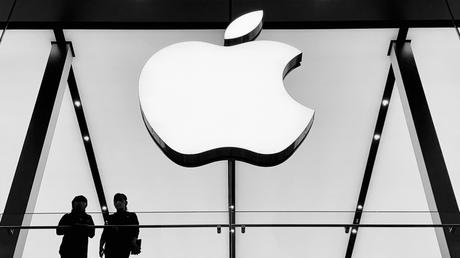
Apple Inc. (NASDAQ: AAPL) has for the first time published App Store guidelines regarding non-fungible tokens (NFTs).
The Silicon Valley tech titan outlined viable applications for non-fungible tokens and reaffirmed that its 30% “Apple Tax” will apply to in-app purchases. NFTs acquired elsewhere will only be accessible for viewing.
The firm also allows applications “use in-app purchase to sell and sell services related to non-fungible tokens (NFTs), such as minting, listing, and transferring.”
It is impossible to avoid the Apple Tax on NFTs
Apple has been criticized heavily for attaching its characteristic 30% tax on purchases made in apps like Magic Eden and OpenSea.
In contrast to the typical commission of 2.5%, Apple is digging down on its far higher tax and guaranteeing that it cannot be avoided.
The new regulations prohibit the use of buttons, external links, and other calls to action within apps. This ensures that all NFT purchases will be made within the app, with Apple receiving a part. Before, upon learning of the 30% tax, some apps limited Apple customers’ ability to buy and trade NFTs within their apps. However, this has not prevented Apple from using it.
The net continues to tighten around unregulated activity
Although Apple’s tax on NFTs made news with the announcement of these guidelines, and rightfully so, the additional language regarding exchange apps only being available in regions and countries where a license has been secured was also noteworthy. Each week or month, a growing number of corporations shut down exchanges and trading apps that have failed to acquire valid licenses in the countries in which they operate.
Not too long ago, a wave of U.K. banks banned deposits to Changpeng Zhao’s Binance due to the same issue. The digital currency exchange, notorious for jurisdiction-hopping, promised to acquire a valid U.K. license but refused to work with the regulator. Similarly, it abandoned an attempt to operate a licensed exchange in Singapore.
Large corporations are increasingly averse to dealing with the dodgy operators who have dominated the digital currency market to date. Apple is just one of several platforms that have made it clear that corporations that refuse to comply with the law are not welcome.
Expect this noose to tighten more in the future as corporations begin self-policing in anticipation of additional governmental crackdowns. In a few years, the industry will be unrecognizable, and only regulated, law-abiding businesses and blockchains will survive.
Leave this field empty if you're human: